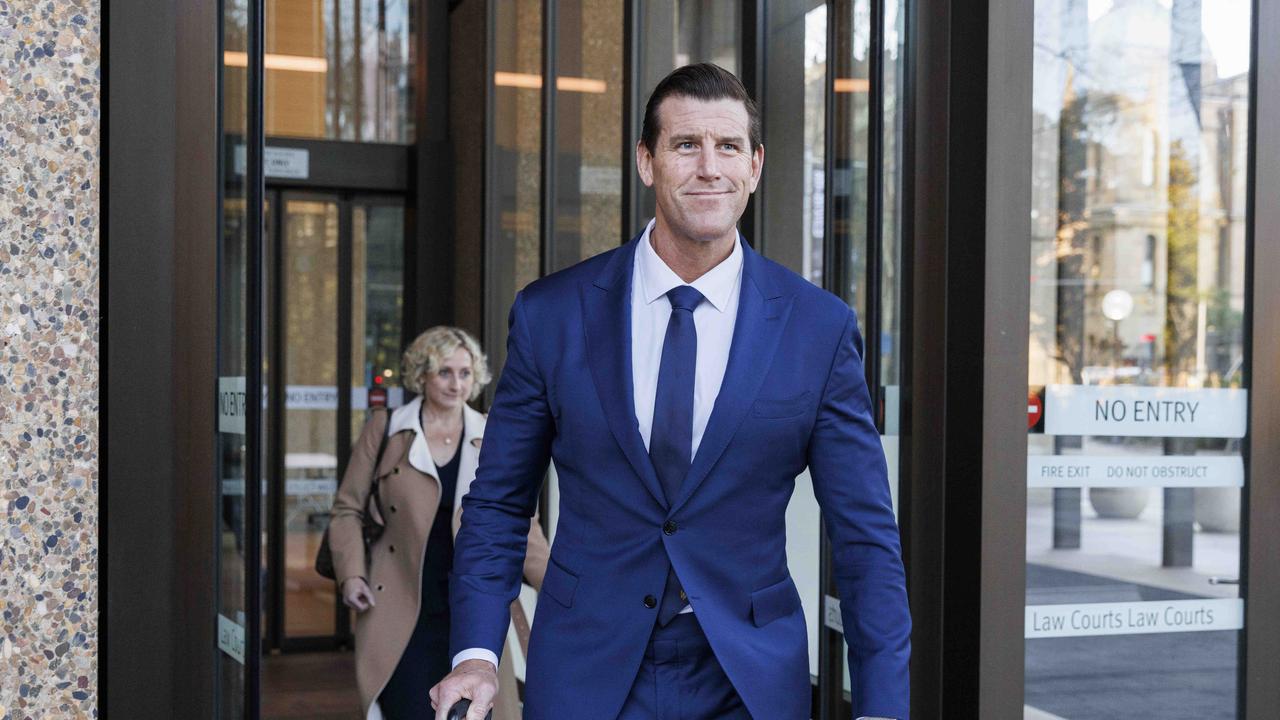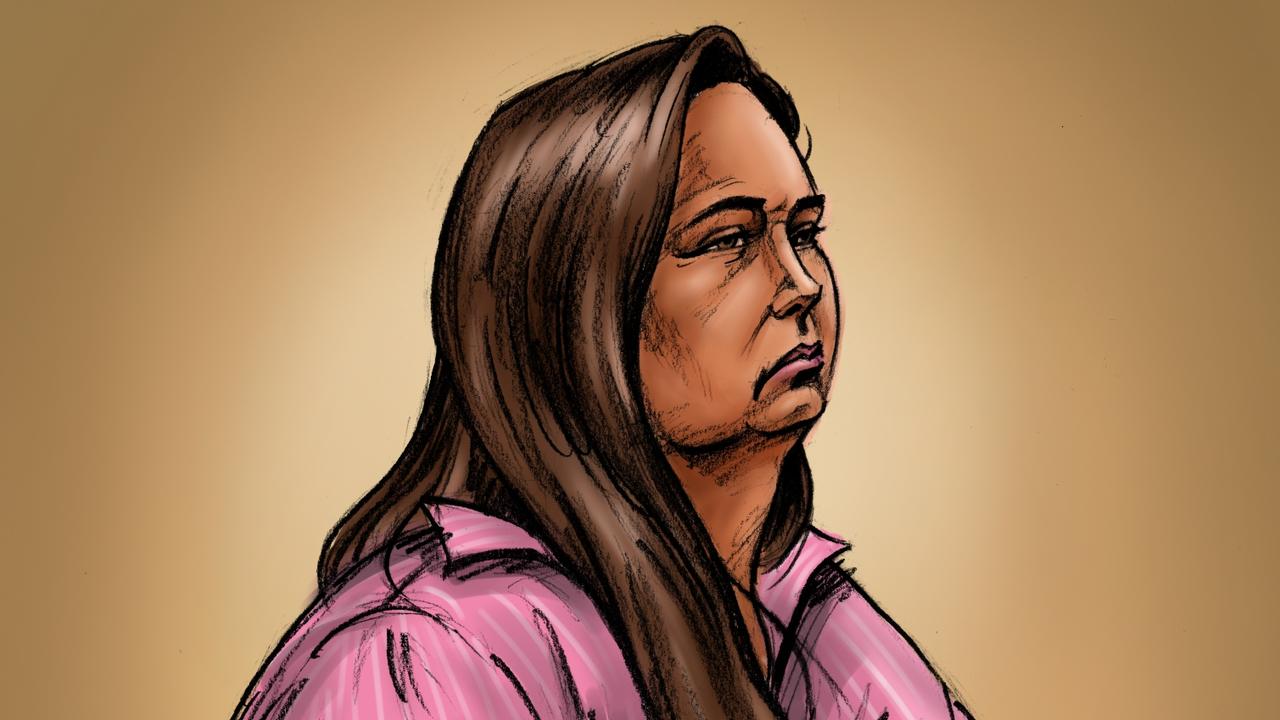Royal Commission considers leg-up to job interviews for Australian war veterans
Tom Halloran took his life after some thought he was slacking off. He was hiding a bigger injury. His case continues to stay with the Royal Commissioners who are keen to help war vets.
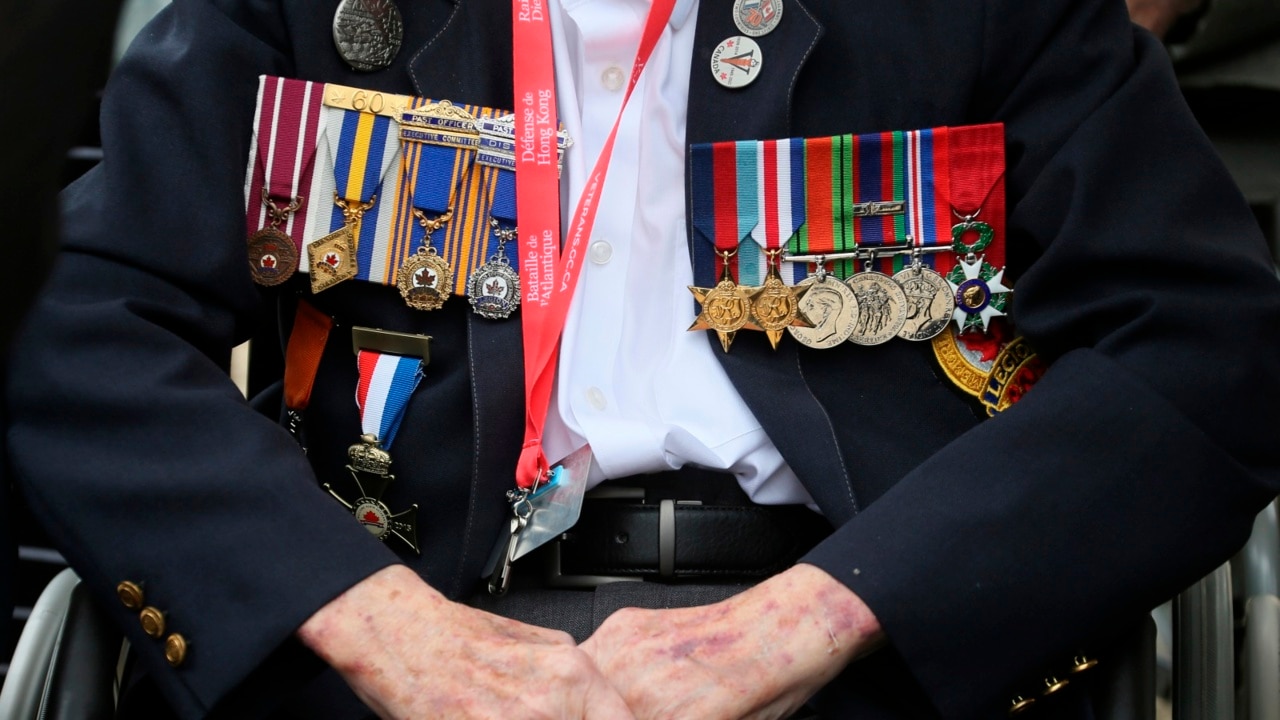
National
Don't miss out on the headlines from National. Followed categories will be added to My News.
Military veterans could be fast-tracked to civilian employment interview stage in recognition of their service to Australia, under an initiative being considered by the Royal Commission into Defence and Veteran Suicide.
The commission has found there was a public perception that ex-service personnel were somehow “broken” when they left, despite findings 80 per cent leave ADF with positive experiences.
The leg-up to civilian employment would not guarantee them a job but put them at the top of the queue for interview in a program that runs successfully in the UK and Canada.
“I think it’s certainly one of the things we’ll be looking at, how to perhaps encourage non-government, in particular, to become a little bit more involved (in employment) and they do that very well I think in the UK, where companies are accredited as being preferred employers of ex-serving members,” Commission chair Nick Kaldas said yesterday.
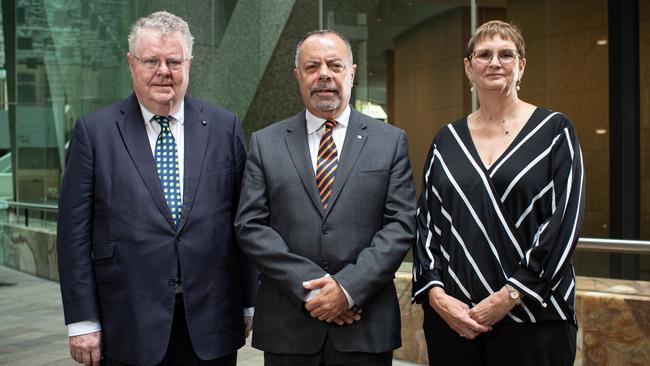
Dr Peggy Brown, who sits alongside Mr Kaldas and former judge James Douglas, said it was recognised ex-serving members had significant technical, leadership and problem-solving skills and discipline, but perhaps struggled with compiling a CV or to get a foot in the door.
“What they’re saying essentially is ‘here are people who have served our nation, that they’ve been prepared to put their life on the line to protect our country and our people, and in return for that, we owe them something’. They don’t guarantee them a job … they say ‘we will guarantee that we will interview you’ so it’s a kind of something-in-return,” Dr Brown said of the UK-Canada programs.
“It’s recognising the contribution they’ve made, recognising the challenges they have and giving them an opportunity but not advantaging them over the general population, which I think is a great way to tackle it.”
The scheme, introduced in the UK civil service in 2020 and later extended to private employers, sees business and departments sign up to guarantee interview stage for former armed forces if they meet basic minimum criteria.
TALES OF HARDSHIP AND DESPAIR
As a Supreme Court judge and Kings Counsel, James Douglas has never been far from tales of human hardship and despair.
But since joining the Royal Commission into Defence and Veteran Suicide, he has encountered a new level of misery and bureaucratic failures in hundreds of even-more harrowing stories not yet making public headlines.
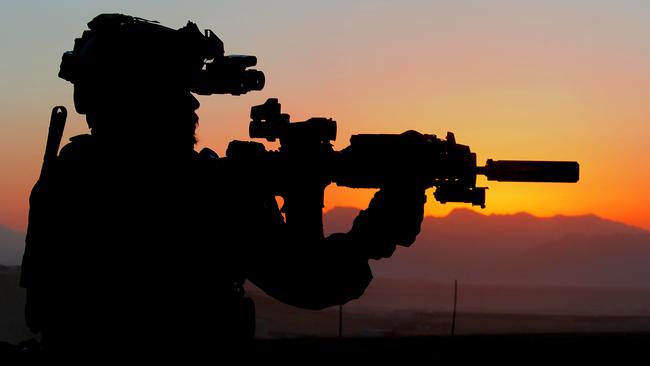
“I wasn’t nearly aware of it as I am now, so I was surprised at the depth of it,” the former Queensland judge said yesterday from the commission’s national headquarters, overlooking Circular Quay on Sydney Harbour.
“But the depth of it has become increasingly obvious since we have been here. The number of deaths reported (by health authorities) have risen significantly even as the royal commission has been going … I do find it surprising, though, the military has not done more to contain this problem.”
The commission is at the half way point of its huge probe into what has been described as a national tragedy and ongoing crisis within the ranks of current serving Australian Defence Force and ex-service personnel.
The commission leads agreed to speak openly for the first time about where they were at, not just with unpacking the construct of the Department of Veterans’ Affairs but the weight of history that now sits on their shoulders.

Commission chair, former law enforcer Nick Kaldas, and his commissioners Douglas and Fellow of the Royal Australian and New Zealand College of Psychiatrists Dr Peggy Brown have already held eight public hearings, heard from 243 witnesses and reviewed 3200 submissions as their 100 staff field more than 3500 telephone inquiries.
But, behind the scenes since the $180 million royal commission was established in July 2021, the trio have also held 363 private sessions with individuals to hear their stories one-on-one.
“We come from diverse backgrounds, and we’ve been around the block once or twice, but you’d have to be inhuman not to feel enormous sympathy for people, hearing their stories up close in private sessions and in public hearings and submissions,” Mr Kaldas said.
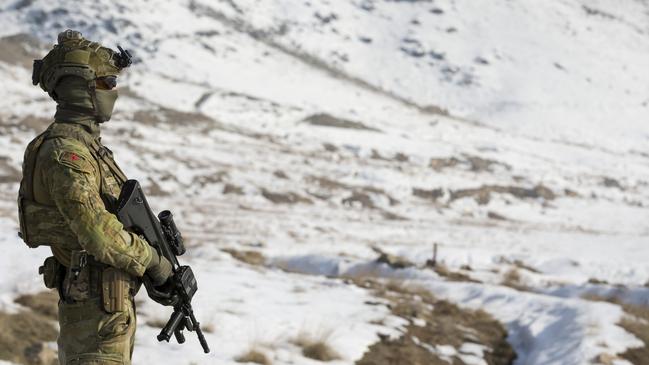
There have been 57 previous inquiries and 700 recommendations into the issues of defence, culture and veterans’ claims and suicide but, since 1997, another 1600 suicides and little change.
“We are absolutely committed to finally changing, fundamentally changing, the dynamic and the culture, making recommendations to achieve that, so that there isn’t a need for more inquiries,” Mr Kaldas said.
“We also accept realistically that there will not be another Royal Commission into this issue in our lifetime. I can’t see how there would be so we do feel the weight of history a little bit, the expectations from the stakeholders, the veterans, serving members, they’re all looking for the Royal Commission to finally make a difference and make recommendations that actually achieve a significant shift in the way things are being done.”
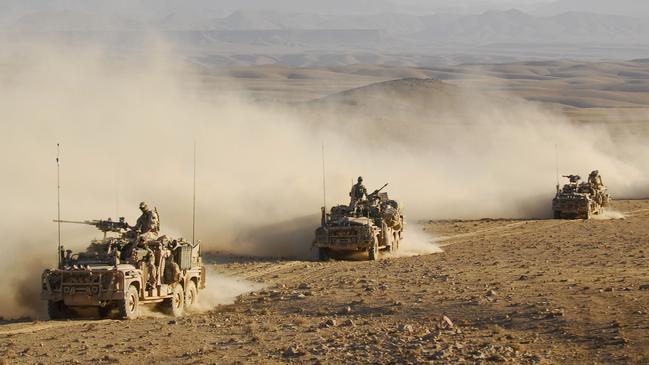
Dr Brown said there was clear evidence that the DVA and Defence had “failed to join the dots” over the years and recognise they had a problem, but she believed there was now finally recognition of a connection between suicide and how veterans had been treated.
“I suspect that perhaps the fact that the suicide rate of the serving (ADF personnel) is less than the general population that their sense has been ‘well not our problem, because we’re actually good for these guys’,” Dr Brown said.
“I don’t think they’ve had that longer term perspective to think ‘well, perhaps something that’s happening while they’re in (service) that actually then leaves them with a vulnerability once they’ve left’, and personally I think that that’s something of a new revelation to them, whether it’s brand new or whether it’s just that they haven’t wanted to see it I don’t know.”
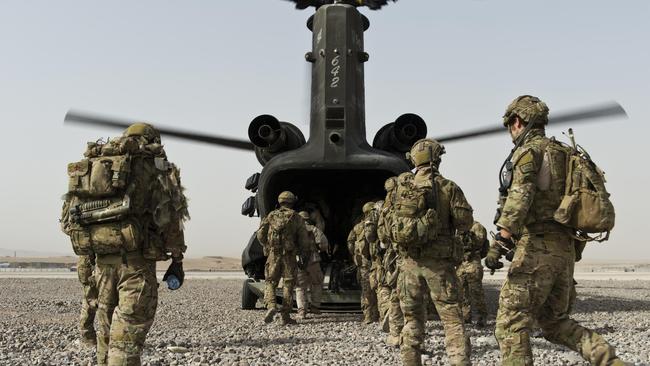
The commissioners are quick to point out that 80 per cent of people who go through the ADF have a very positive experience and get on with life when they get out, but that leaves 20 per cent.
Mr Douglas said there had been several cases that had struck him as being very sad but one in particular was that of Darwin-based Private Tom Halloran.
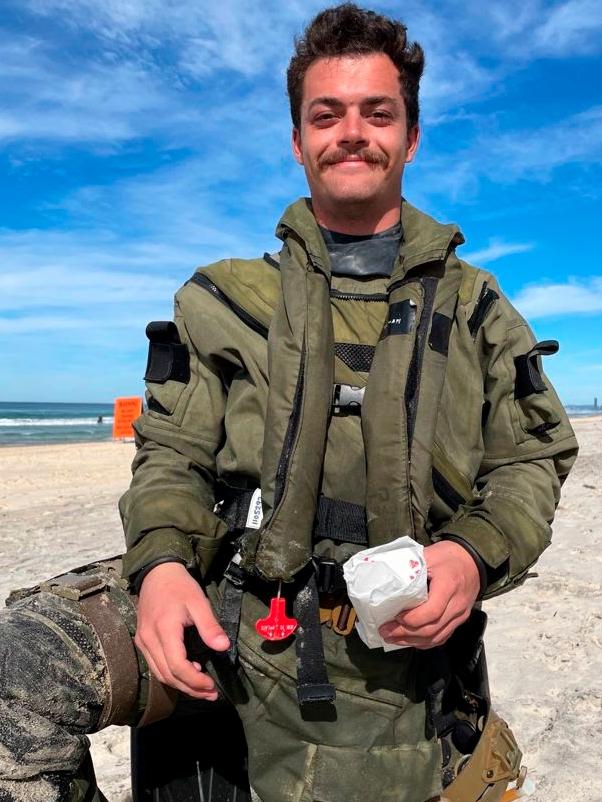

He died at Robertson Barracks a week before his 22nd birthday in constant pain from a back injury he concealed and self-medicated so he could be considered for deployment. He felt isolated and bullied for what was perceived as slacking off.
“The evidence from his parents was very affecting, not only because of their deep sorrow, but also because they had clear and well-articulated ideas about how the system could be improved,” Mr Douglas said.

An oath found on official correspondence sent by the Department of Veterans’ Affairs reads:
“For what they have done, this we will do,” followed by a short statement that highlights respect, value and a promise to embrace and support military veterans.
Mr Kaldas said the DVA have not lived up to that oath and the commissioners’ aim now was to ensure they did.
For support call Open Arms on 1800 011 046 open 24 hours or visit soldieron.org.au



